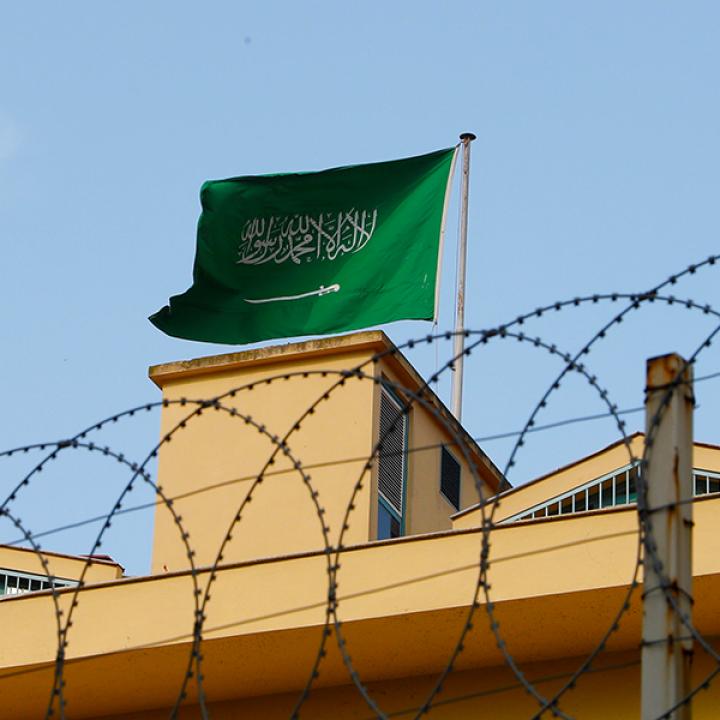
- Policy Analysis
- Policy Alert
New Saudi Statement on Khashoggi’s Killing: Policy Response

Riyadh’s shifting, dubious storyline presents a dilemma for allies who want to reestablish good working relations with the world’s largest oil exporter.
Earlier today, the Saudi Public Prosecutor’s Office released its latest statement on the murder of exiled journalist Jamal Khashoggi, announcing that eleven people have been charged in the incident and that five of them face a potential death penalty. Another ten are being held for further investigation.
In determining how they should react to this statement, policymakers will likely apply two tests:
1. Is the Saudi explanation convincing? This is a particular concern with regard to public opinion in countries that supply weapons to the kingdom—especially the United States, where Congress plays a major role in approving arms deals.
2. Is it adequate? This remains a concern for the many U.S. allies who are horrified by the incident. Yet policymakers also recognize the need to preserve working relations with Riyadh in order to maintain stable oil prices and avoid disrupting the global economy.
Today’s statement largely reiterates Riyadh’s main narrative: that the October 2 murder at the Saudi consulate in Istanbul was a rogue operation, and that Crown Prince Muhammad bin Salman (MbS) was not involved in any way. Yet this claim remains dubious given the prince’s closeness to some of the suspects, including media aide Saud al-Qahtani, who has since been sanctioned by the United States and barred from leaving the kingdom.
Many of the statement’s details strain credulity as well. Last month, for instance, Saudi foreign minister Adel al-Jubeir stated that Khashoggi’s body had been left intact, rolled up in a carpet, and given to an unnamed Turkish contractor for disposal. In response, the Turkish government asked for the contractor’s name, to no avail. The new Saudi statement admits that the body was dismembered, then continues to claim that the body parts were given to a local “collaborator,” again nameless—though Riyadh has offered to show Turkish authorities a “composite sketch” of this individual based on descriptions from one of the detained suspects.
Going forward, Washington and its allies seem to realize the necessity of maintaining working ties with MbS, the kingdom’s main decisionmaker in light of his father’s age and poor health. But as British foreign secretary Jeremy Hunt stated while visiting Riyadh this week, officials have been very frank in emphasizing how important it is for Saudi Arabia’s strategic partners “to know this cannot and will not happen again.” Likewise, U.S. defense secretary Jim Mattis warned Riyadh last month about the threat to “regional stability” and the need to hold the perpetrators accountable.
Many officials may still hope that the advances in economic and social policy enacted by MbS can survive the crisis. As Israeli ambassador to Washington Ron Dermer argued last week, “We must not throw the prince out with the bathwater.” For the moment, however, foreign investors—whose financial and technological assistance is indispensable to the prince’s planned economic transformation—will likely remain cautious about committing themselves.
Turkey has reportedly shared some audio intelligence of the murder with officials in the United States, Britain, Canada, France, and Germany. Yet these officials have few levers to influence Saudi policy on the affair. Those around MbS are letting it be known that he is prepared to maintain his brazen approach until the crisis dies down. Ankara still holds a strong hand, though—if the past is any indicator, President Recep Tayyip Erdogan will soon leak out more information about what his security services have discovered.
Simon Henderson is the Baker Fellow and director of the Bernstein Program on Gulf and Energy Policy at The Washington Institute.

